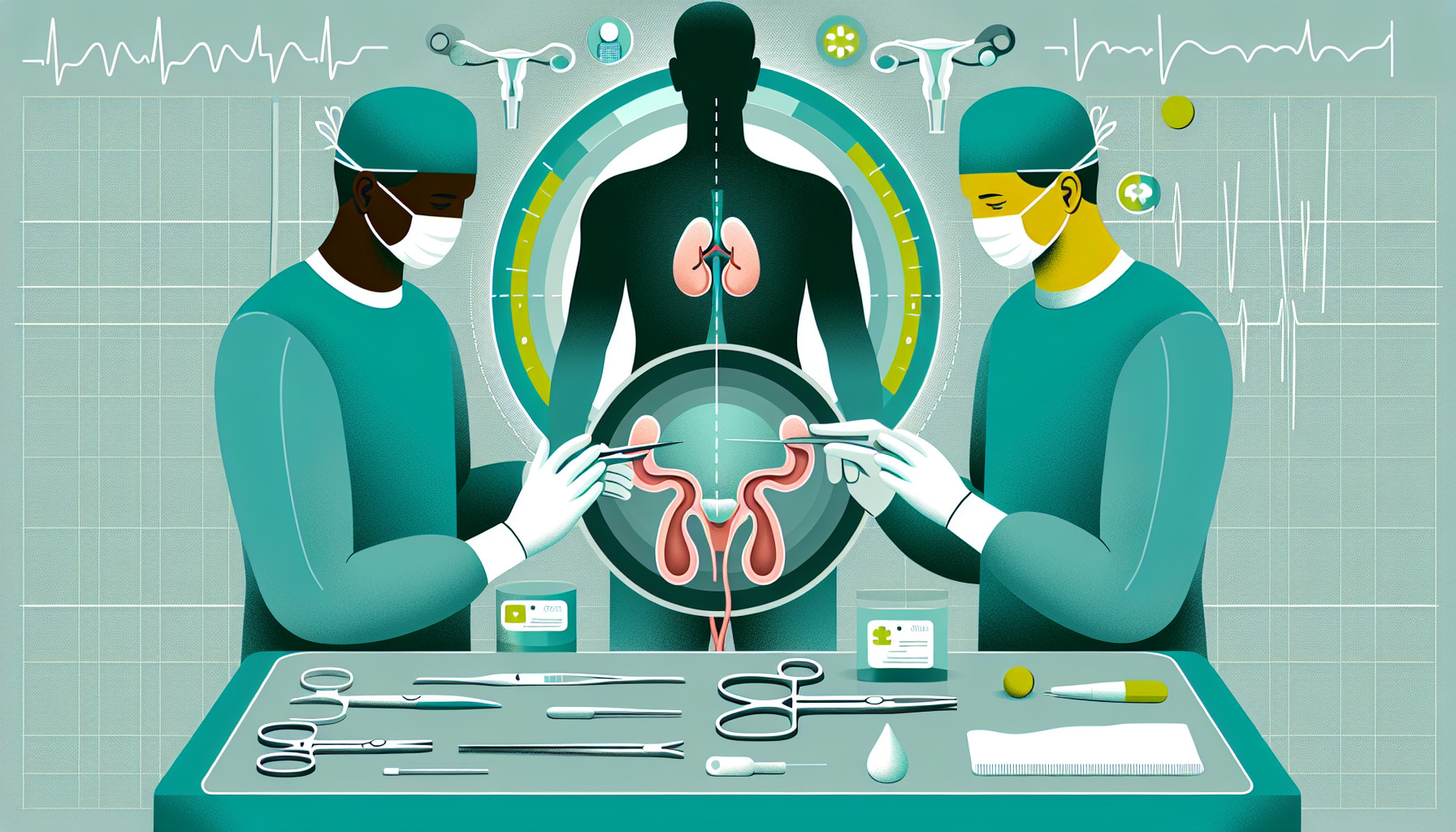Our Summary
The research paper looks at how a type of surgery called radical cystectomy (RC) - often used as a treatment for bladder cancer - affects patients’ quality of life. The study, which took place from 2008 to 2014, asked 411 patients about their health and wellbeing before and at several points after the surgery. The patients had one of two types of urinary diversion surgery, which can affect quality of life differently.
The researchers found that, in the first six months after surgery, patients’ physical health scores decreased slightly, but then either returned to their pre-surgery level or stayed stable. Social function improved in patients who had one type of surgery (continent diversion), but stayed the same in those who had the other type (ileal conduit). Overall, patients reported better quality of life six months after the surgery. Sexual function scores were low before and after the surgery, with little improvement. Patients’ feelings about their body image worsened, especially in those who had the ileal conduit type of surgery.
The researchers conclude that, in general, patients’ quality of life returned to or exceeded their pre-surgery levels within 24 months, with the exception of sexual function and body image. They suggest that RC is a good treatment option for high-risk bladder cancer, as it controls the disease well and does not lead to a major decrease in quality of life.
FAQs
- What is radical cystectomy and why is it used?
- How does radical cystectomy affect patients’ quality of life, based on the study’s findings?
- What differences were found in the impact of the two types of urinary diversion surgery on patients’ quality of life?
Doctor’s Tip
One helpful tip a doctor might tell a patient about cystectomy is to focus on the overall improvement in quality of life that can be expected after the surgery. It is important for patients to understand that while there may be temporary decreases in physical health and changes in social function, these typically improve over time. Patients should also be aware that sexual function and body image may be areas of concern that could benefit from additional support and resources. Overall, the research suggests that cystectomy can be an effective treatment for bladder cancer with manageable impacts on quality of life.
Suitable For
Patients who are typically recommended cystectomy are those with high-risk bladder cancer that has not responded to other treatments, such as chemotherapy or radiation therapy. Cystectomy may also be recommended for patients with advanced stages of bladder cancer or those with recurrent tumors. Additionally, patients with certain types of non-muscle invasive bladder cancer that have a high risk of progression to muscle-invasive disease may also be recommended for cystectomy.
Timeline
Before cystectomy: Patients are diagnosed with bladder cancer and undergo various tests and treatments to determine the best course of action. If cystectomy is recommended, patients are informed about the surgery and the potential impact on their quality of life.
Day of surgery: Patients undergo radical cystectomy, which involves the removal of the bladder and possibly other nearby organs. Depending on the type of surgery, patients may also undergo urinary diversion surgery to reroute the flow of urine.
Immediately after surgery: Patients recover in the hospital, where they may experience pain, discomfort, and difficulty with mobility. They receive care from medical professionals to manage their pain and monitor their progress.
Weeks to months after surgery: Patients continue to recover at home, following a strict post-operative care plan. They may experience side effects such as fatigue, changes in bowel habits, and difficulties with urinary function.
Six months after surgery: Patients’ physical health scores may have decreased slightly but then returned to pre-surgery levels or stabilized. Social function may improve for some patients, while sexual function and body image may remain low.
24 months after surgery: Patients’ quality of life generally returns to or surpasses pre-surgery levels, with the exception of sexual function and body image. Overall, patients report better quality of life after cystectomy, particularly if they had continent diversion surgery.
Overall, the timeline of a patient before and after cystectomy involves undergoing the surgery, recovering from the immediate post-operative period, and gradually regaining physical and emotional well-being over time. It is important for patients to receive support and follow-up care to ensure a successful recovery and adjustment to life after cystectomy.
What to Ask Your Doctor
- What are the potential risks and complications associated with cystectomy surgery?
- How will my quality of life be impacted following cystectomy surgery?
- What type of urinary diversion surgery is recommended for me, and how will it affect my quality of life?
- How long is the recovery time after cystectomy surgery?
- Will I need any additional treatments or therapies after the surgery?
- How often will I need follow-up appointments and monitoring after the surgery?
- Are there any lifestyle changes or adjustments I should make after the surgery?
- What support services or resources are available to help me cope with the physical and emotional effects of cystectomy surgery?
- How will cystectomy surgery affect my ability to work or participate in daily activities?
- What are the long-term outcomes and prognosis following cystectomy surgery?
Reference
Authors: Clements MB, Atkinson TM, Dalbagni GM, Li Y, Vickers AJ, Herr HW, Donat SM, Sandhu JS, Sjoberg DS, Tin AL, Rapkin BD, Bochner BH. Journal: Eur Urol. 2022 Mar;81(3):294-304. doi: 10.1016/j.eururo.2021.09.018. Epub 2021 Oct 8. PMID: 34629182
